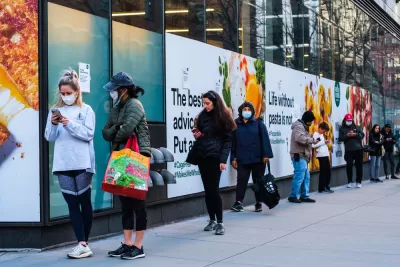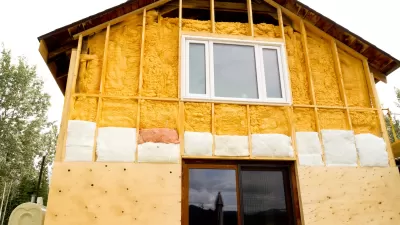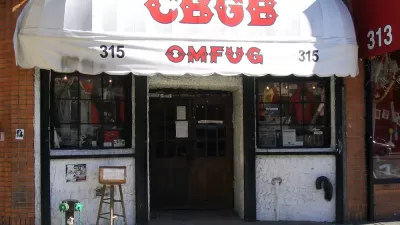New York City launched its first ever environmental justice study just before the Covid-19 pandemic turned the world upside down. The study took on a new urgency throughout the months and years that followed.

Danielle Muoio Dunn checks in with an environmental justice effort that launched in New York City just before the onset of the stay-at-home orders and shutdowns of the early pandemic.
Backing up the beginning, Mayor Bill de Blasio hired Adriana Espinoza at the beginning of 2020 to lead New York City’s first environmental justice study. A few weeks later, Covid-19 would give the study a whole new meaning, according to Dunn.
Communities of color that have long lived in the shadow of power plants, highways and waste transfer stations were among the hardest hit by the pandemic. Black and Latino residents have had significantly higher death rates than their white counterparts — often due to higher rates of preexisting respiratory conditions that trace their root, in part, to living in highly polluted areas of the city.
Dunn reports that the report will be released within months. Along the pandemic way, Espinoza says the work took on "newfound urgency to not only expose the environmental injustices that exist throughout New York, but [also to] create new standards for the government agencies she works with to undo them."
The source article also discusses examples of other jurisdictions around the country working to account for the effects of environmental injustice. The federal government has its own effort. "The Biden administration has similarly increased its focus on environmental justice communities through the Justice40 initiative — a program meant to ensure at least 40 percent of federal investments in climate and clean energy go to disadvantaged communities," writes Dunn.
FULL STORY: An ‘urgent’ crisis: City's study of environmental inequities gains new momentum amid Covid

Planetizen Federal Action Tracker
A weekly monitor of how Trump’s orders and actions are impacting planners and planning in America.

Restaurant Patios Were a Pandemic Win — Why Were They so Hard to Keep?
Social distancing requirements and changes in travel patterns prompted cities to pilot new uses for street and sidewalk space. Then it got complicated.

Map: Where Senate Republicans Want to Sell Your Public Lands
For public land advocates, the Senate Republicans’ proposal to sell millions of acres of public land in the West is “the biggest fight of their careers.”

Maui's Vacation Rental Debate Turns Ugly
Verbal attacks, misinformation campaigns and fistfights plague a high-stakes debate to convert thousands of vacation rentals into long-term housing.

San Francisco Suspends Traffic Calming Amidst Record Deaths
Citing “a challenging fiscal landscape,” the city will cease the program on the heels of 42 traffic deaths, including 24 pedestrians.

California Homeless Arrests, Citations Spike After Ruling
An investigation reveals that anti-homeless actions increased up to 500% after Grants Pass v. Johnson — even in cities claiming no policy change.
Urban Design for Planners 1: Software Tools
This six-course series explores essential urban design concepts using open source software and equips planners with the tools they need to participate fully in the urban design process.
Planning for Universal Design
Learn the tools for implementing Universal Design in planning regulations.
Heyer Gruel & Associates PA
JM Goldson LLC
Custer County Colorado
City of Camden Redevelopment Agency
City of Astoria
Transportation Research & Education Center (TREC) at Portland State University
Camden Redevelopment Agency
City of Claremont
Municipality of Princeton (NJ)





























